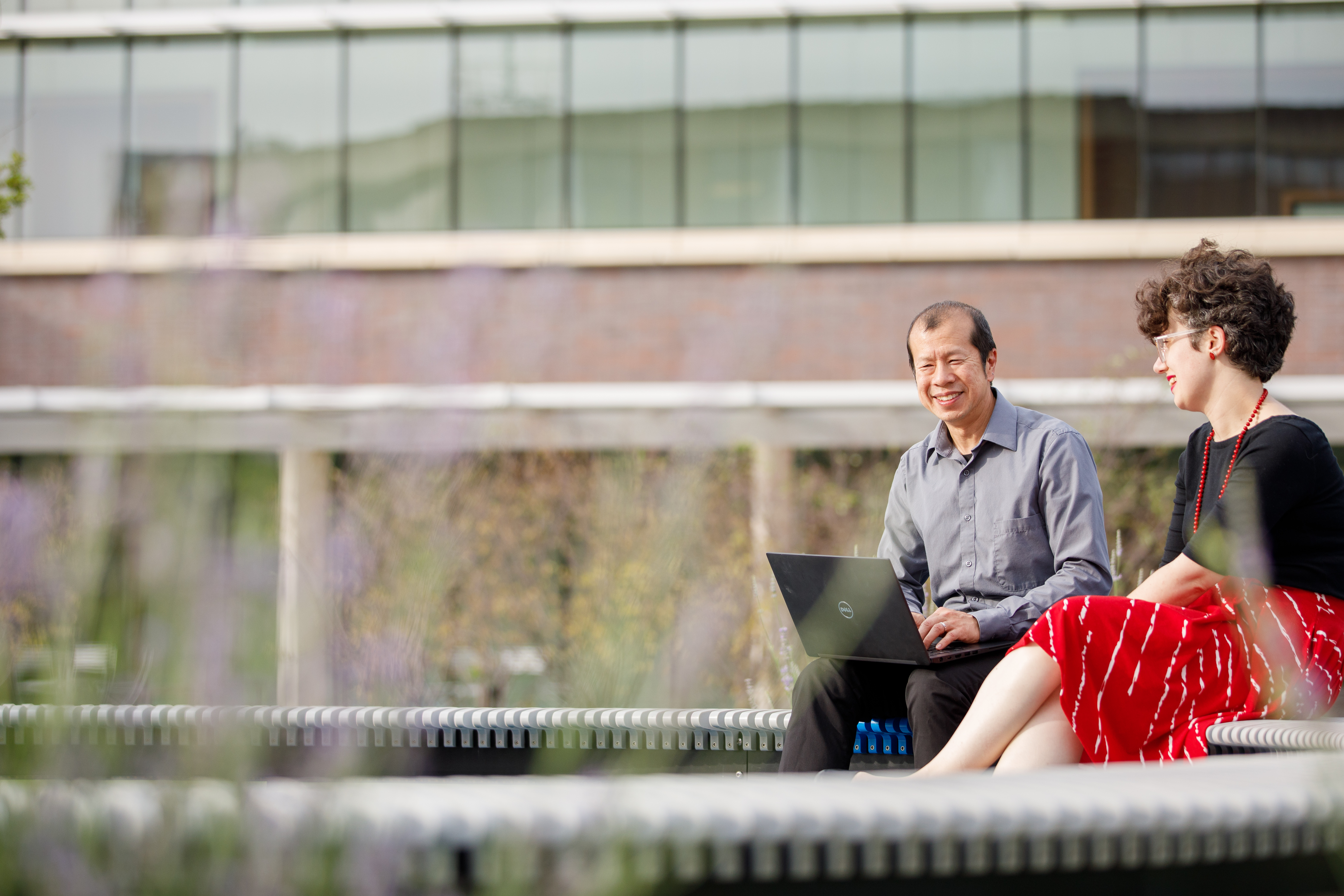Student enrollment at the KU Edwards Campus reaches 12-year high for fall 2021

Enrollment in programs offered through the KU Edwards Campus (KUEC) continues to grow, with fall 2021 marking the highest student enrollment in more than 12 years. Enrollment increased by 58 students (3.8%) compared to fall 2020, making the total student headcount 1,567, not including students from KU’s Lawrence and Medical Center campuses who attend classes through the Edwards Campus. This is a 44% increase over the past five years.
KU Edwards Campus student credit hours (SCH) remain steady this fall at 14,949 – the second highest in more than 12 years, up 11.6% since 2019 and 39.1% over the past five years.
Graduate programs – particularly those offered through the KU Edwards Campus online – showed the largest growth in student credit hours. The online master’s and graduate certificate in applied behavioral science, offered in collaboration with KU’s Department of Applied Behavioral Science, generated 382 SCH this fall, which is a 29.1% increase from the prior year. The online Professional Science Masters (PSM) in Environmental Geology, offered in collaboration with KU’s geology department, nearly doubled in size year over year, up 90.1%.
Other growing graduate programs include:
- Education graduate programs offered through the Edwards Campus: up 72.8%
- Master’s in civil engineering: up 88%* **
- Graduate certificate in software engineering: up 72.7%**
- American Sign Language graduate certificates: up 33.3%***
- Graduate certificate in cybersecurity: up 3.1% **
- Professional Science Masters and certificates in environmental assessment: up 1.9%* **
* Program is either fully or partially delivered online
** Supported by the Johnson County Education Research Triangle (JCERT)
*** Offered through the KU School of Professional Studies
Student enrollment in School of Professional Studies (SPS) courses increased by 34.9% to 587 students, compared to fall 2020, and student credit hours in the school’s courses increased by 20.7% or 481 SCH. This was the first regular semester of the new online Bachelor of Health Sciences – offered through the SPS and supported by the Johnson County Education Research Triangle (JCERT). Thirty-one students are currently enrolled; the bachelor’s in health sciences and related certificate courses generated 595 SCH.
Other undergraduate programs with significant SCH growth from fall 2020 to fall 2021 include:
- Undergraduate certificate in accounting: up 70.6%*
- Bachelor’s in American Sign Language & Deaf studies: up 45.2% **
- Bachelor’s in exercise science: up 19.3%*
- Bachelor’s in social work: up 14.6%
- Bachelor’s in biotechnology: up 8%* **
- Bachelor’s in environmental studies: up 6.3%*
* Supported by the Johnson County Education Research Triangle (JCERT)
**Offered through the KU School of Professional Studies
Programs supported by JCERT increased in SCH 12.4% from fall 2020 to fall 2021. “JCERT’s essential support allows us to launch and build important programs for today’s workforce,” said Stuart Day, dean of KUEC and the School of Professional Studies. “From health care and engineering to environmental assessment and business, we are training professionals to meet the needs of the community.”
The KU Edwards Campus has been a KU presence in Kansas City for nearly 30 years. It provides flexible, career-focused education to adult learners, including on-campus, online and hybrid course options. All students have previous college credit; 64% work part-time, 36% work full-time; 51% are undergraduate students, 49% graduate students; 32.7% identify as an ethnic minority; and 25% are first-generation college students. KUEC’s MetroKC rate provides in-state-equivalent tuition rates to all students across the metro, and its innovative transfer pathways offers high school and community college students in the area streamlined access to a four-year degree.
“We are thrilled to serve more students this fall than ever before," Day said. "We continue to meet students where they are – whether that’s online, in-person or a mix of the two – fulfilling our goal to meet the needs of professionals and today’s workforce, advance careers and improve lives with a KU education. I’m excited to see what these students accomplish over the coming semesters, and the coming years.”





